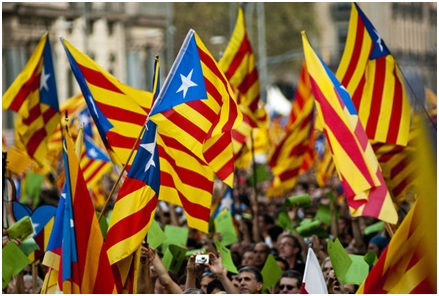March 24th 2016. The streets of Edinburgh and Glasgow are coloured blue and white with Scottish Saltires. A public celebration to mark the first Scottish Day of Independence is taking place on the Edinburgh Royal Mile, with Alex Salmond giving the main address as the first head of government of an independent Scotland since the eighteenth century. Her Majesty Queen Elizabeth II, still Sovereign of Scotland, has already sent her good wishes and an expression of hope that Scotland will continue to flourish, now as an independent nation.
Is this a likely scenario? We offer no polling predictions, which are uncertain at the best of times in any case. But what is certain at this time is this: in September 2014 (on the seven-hundred year anniversary of Robert the Bruce’s victory over the English at Bannockburn) the people of Scotland will go to the polls for a referendum on independence, and if the Scottish electorate votes ‘Yes’, March 24th 2016 will be the (projected) date of independence day.
Historians of, to use a popular expression, ‘these Isles’, particularly those interested in nations and nationalisms, can hardly fail to be struck to the parallels, contrasts, and precedents offered for the Scottish independence question by the break-up of a previous Union: the Union of Great Britain and Ireland of 1800, which came to an end with the establishment of the Irish Free State in 1922. It is perhaps itself noteworthy that these parallels and contrasts seem to be much less often remarked upon south of the border than in Scotland. Yet the nineteenth and early twentieth centuries offer a rich history of Irish-Scottish political debate on the Union, both nationalist and unionist, ably charted by works such as Alvin Jackson’s The Two Unions: Ireland, Scotland, and the Survival of the United Kingdom. At least up until the financial crisis of 2008 Alex Salmond regularly cited Ireland as a role model for Scottish independence; he does so less now, at any rate less forcefully. Still, there is only one precedent for a nation-state to have emerged from the United Kingdom by breaking with it – the present-day Republic of Ireland.


